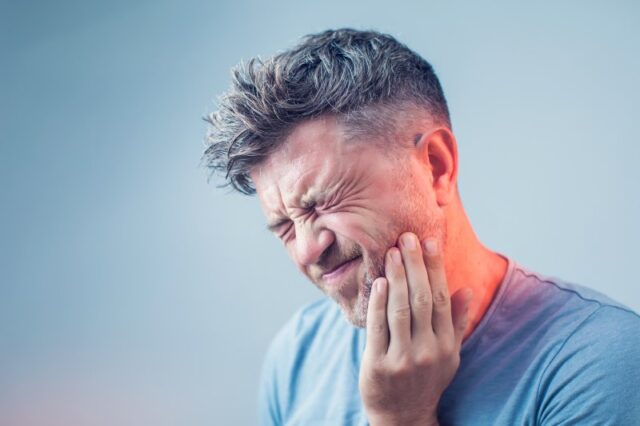Of all body pains, there’s nothing quite like a toothache. Maybe it’s that your mouth is so close to your brain that an oral abscess is excruciating.
The throbbing doesn’t have far to travel, so it makes its presence known very quickly.
You’re programmed to be particularly sensitive to your head, a vulnerable spot for all animals, including humans.
Although a toothache is unlikely to be fatal, at least in the short term, anything going wrong so close to your uppermost organ puts your body on high alert.
Believe it or not, there are cases of lethal tooth infections. That these instances make the headlines, for example, the death of Californian trucker Vadim Anatoliyevich Kondratyuk in 2017, means they are fortunately rare.
A reason to get checked out if you feel dental pain, absolutely. Justification for over-panicking, probably not. That said, most of us scream for the dentist when we feel a toothache.
Once a tooth is so damaged it starts hurting, bacteria has built up, meaning drastic action is usually necessary. An extraction or root canal treatment are the likely cures. The key is trying to prevent teeth going rotten in the first place.
Regular dental check-ups help by reducing plaque build-up. Frequent visits to a dentist also mean dental caries, tooth decay in layman’s terms, can be caught and easily treated, for example, with a filling, before it gets nastier. Diet also has a role to play. Reducing sugar intake, particularly fizzy drinks, is a good start.
Another tip is to use an electric, rather than a manual, toothbrush. Power brushes remove up to twice as much plaque, making a big difference to gum health.
Another plus of electric toothbrushes is that many of them come with timers. According to dentists, we should be brushing our teeth for a minimum of two minutes. Given most of us clean for an average of only 43 seconds, we need all the help we can get!
Flossing is important too. Look at your toothbrush for a moment. How do you imagine it brushes the tight gaps between your teeth?
If you said ‘it can’t’, you’d be bang on. The problem is food and residue from drinks definitely can find their way in there.
Water picks are popular lately, and they are fantastic for people with bridge work or orthodontic braces. For people who’ve had less dental work done, good old floss tape works just as well, as do interdental brushes.
As for toothpaste, at least 1,350–1,500pm fluoride is essential. Despite what some people think, herbal pastes aren’t necessarily better for you. Some don’t have any fluoride at all!
After all those to-dos, what about something you can skip? Wetting your toothbrush before use is unnecessary nowadays, unless you’re using a yard broom.
The reason? Dampening prior to cleaning harks back to the days when bristles were much tougher than they are now and needed water to soften them.
SEE ALSO – Andrew McDonald: Alcoholism – fighting fire with fire

























